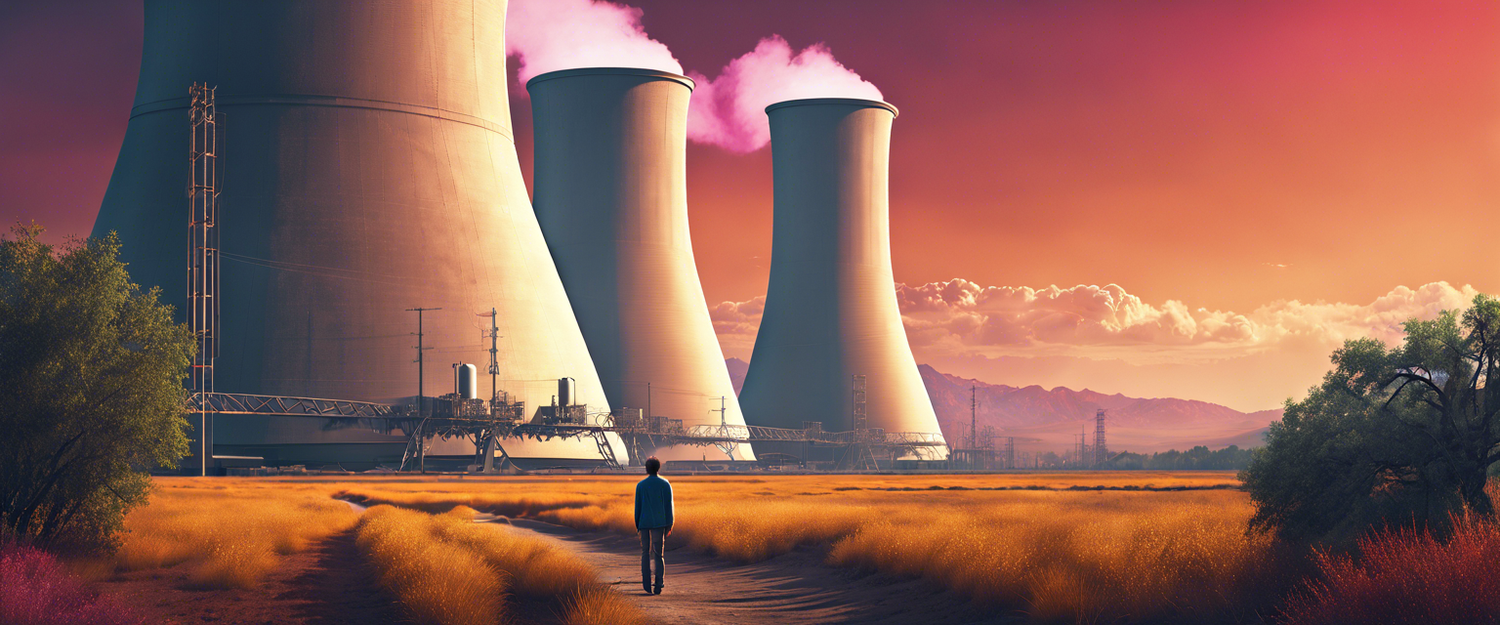Meta's Push for Nuclear Energy: A New Era in AI Development
In a bold move to support its AI ambitions, Meta has recently announced a request for proposals to partner with nuclear energy developers. This initiative marks Meta's entry into the growing trend among Big Tech companies, including Amazon, Microsoft, and Google, to harness nuclear energy to power their data centers. As the demand for advanced AI tools surges, these companies face challenges in aligning energy consumption with sustainability efforts.
The Rising Demand for Energy in AI
Developing cutting-edge AI technologies requires significant energy resources, creating a potential conflict with Silicon Valley's sustainability goals. Meta's decision to explore nuclear energy comes as no surprise, given the energy-intensive requirements of data processing and machine learning enhancements. The integration of cleaner energy sources has become increasingly crucial for tech giants aiming to mitigate their environmental impact.
Challenges in Expanding Nuclear Energy
While the pursuit of nuclear energy seems promising, transitioning to this energy source is not straightforward. The first completely new nuclear reactor built in the United States in decades began operation in 2023, but not without considerable delays and budget overruns, costing an estimated $17 billion more than anticipated.
To pave the way for more efficient nuclear energy production, developers are now focusing on advanced technologies like Small Modular Reactors (SMRs). These reactors offer potential benefits in terms of cost-efficiency and siting flexibility, but experts predict they won't be commercially viable until at least the 2030s, presenting a significant hurdle for immediate energy needs.
Meta's Nuclear Energy Goals
Meta has expressed interest in partnering with entities that can facilitate the entire lifecycle of nuclear plant development—from financing and engineering to construction and operation. The company aims to add between 1 to 4 gigawatts of nuclear generation capacity in the United States by the early 2030s, positioning itself as a leader in sustainable energy solutions.
The Evolving Nuclear Landscape
The nuclear energy sector is experiencing a resurgence as companies seek carbon-free electricity generation options. In the US, nuclear power currently contributes about 19% of the total electricity mix, with 54 nuclear plants generating approximately 97 gigawatts of capacity. This increased interest in nuclear energy offers a viable complement to renewable resources, especially when solar and wind energy outputs fluctuate due to weather conditions.
Industry Collaborations and Government Support
Meta is not alone in this venture; Amazon, Google, and Microsoft are also making strategic moves toward incorporating nuclear power into their operations. Amazon's acquisition of a nuclear-powered data center campus and their recent deals to support SMR development illustrate a broader commitment to sustainable energy solutions. Google, along with Microsoft, has also secured agreements to procure electricity from upcoming SMR projects.
Federal support for nuclear energy has gained momentum under the Biden administration, with aspirations to triple the US nuclear capacity by 2050. The Inflation Reduction Act, enacted in 2022, introduced valuable investment incentives for nuclear energy projects, further enhancing their appeal.
Long-term Outlook and Considerations
Despite the optimism surrounding nuclear energy, the long timelines for constructing new reactors remain a significant challenge. As advanced technologies work to prove their operational efficacy and begin to address the pressing issues of uranium sourcing and radioactive waste management, it’s unclear how soon these developments will align with immediate climate goals.
President Biden's commitment to halving greenhouse gas emissions by 2030 under the Paris Agreement may be at risk, especially amid potential policy shifts with the upcoming elections. Nonetheless, nuclear energy continues to receive bipartisan support, signifying its critical role in the United States' clean energy future.
Conclusion
Meta's venture into nuclear energy underscores a pivotal shift in how tech companies strategize their energy consumption and environmental impact. As the industry evolves, the collaboration among major players and government initiatives will likely define the future of energy sourcing, sustainability, and technological advancement.



Залишити коментар
Усі коментарі модеруються перед публікацією.
This site is protected by hCaptcha and the hCaptcha Privacy Policy and Terms of Service apply.